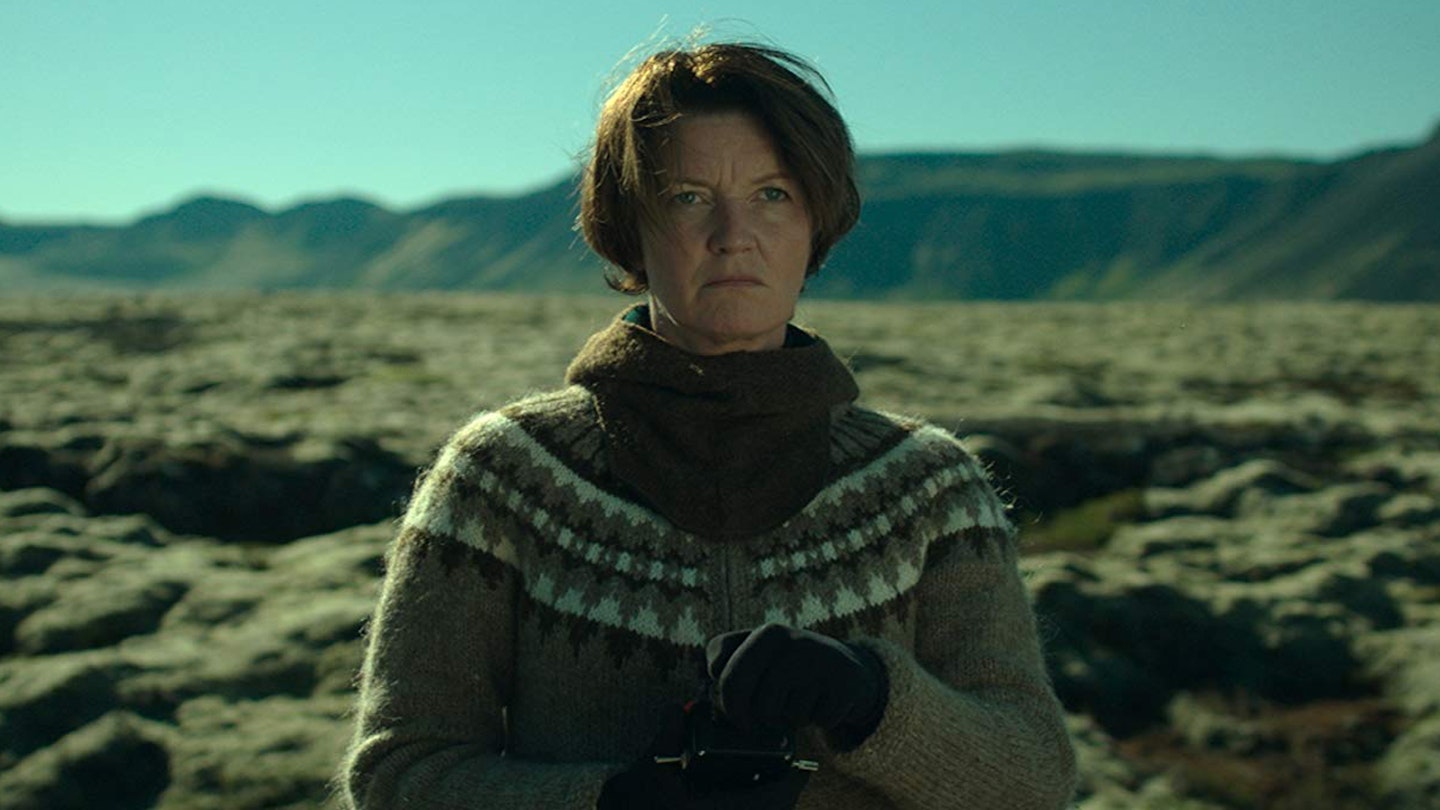It’s deeply satisfying to latch onto a journey led by a woman who is angry. Benedikt Erlingsson’s offbeat comedy is built on an imaginative script, one that flirts with extreme measures you’d expect from sci-fi dystopia. And yet, as the forty-something matriarch Halla, Geirharðsdóttir drives Woman At War with military discipline and deadpan humour.
Halla’s mission is both political and personal – but Erlingsson never spoon feeds her psychology. Her day job fills the time between moments of revolution (she goes viral on Twitter as ‘the Mountain Woman’), and Geirharðsdóttir’s strength is put to the test as her character grows and transforms, without ever falling into clichés. This leaves room for questions, answered only in musical interludes and sweeping, gorgeous rural Icelandic landscapes.
The dissonant comedy succeeds in making entertainment out of anxiety.
There shouldn’t be anything amusing about the worries worn by a woman who’s fighting for life – the one of her country, and the one of all of our children. This is where Erlingsson’s skill as a director both elevates and somewhat hinders Woman At War, as the dissonant comedy succeeds in making entertainment out of anxiety, but loses momentum because of it.
Whether she’s blowing up an electrical line or killing a drone under a Nelson Mandela mask, Halla’s war is underscored by a bohemian three-piece band or a trio of folk singers, who are seen just as much as they are heard. The reliance on music moves beyond sensationalistic surprise, but asks the question as to whether the drama is still the main focus – or whether our world has just become one big joke.
Motherhood is questioned in surprising ways, as the urge to riot and the need to retreat jeopardise Halla’s impending adoption of an orphaned Ukrainian girl. Although balance is never quite found, the risky journey is still just about worth it.
